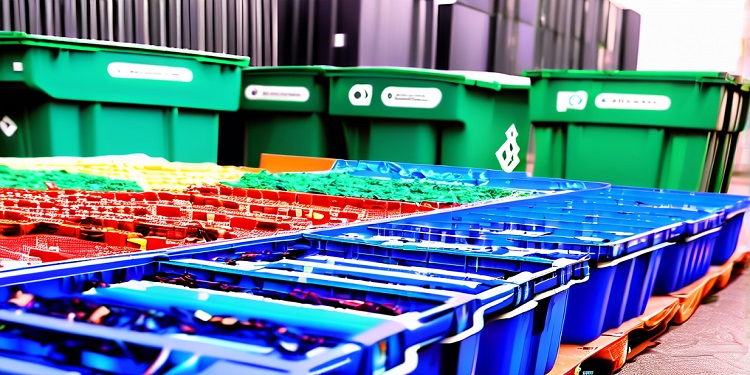Circular Solutions Advisors (CSA) and Plastiks have teamed up to address growing concerns about transparency in recycling activities. By leveraging blockchain technology, the partnership aims to provide verifiable data to companies reporting recycling results, thereby increasing trust and preventing false claims. The collaboration was officially announced at the World Recycling Congress in Rome.
Addressing the need for transparency in recycling
As recycling claims come under increasing scrutiny, the ability to provide accurate and transparent data has become essential. The partnership between CSA and Plastiks combines recycling expertise with blockchain technology to improve the reliability of recycling reporting. The goal is to ensure that companies can substantiate their claims with easily verifiable and secure data. This innovative approach aims to increase the transparency of sustainability efforts and alleviate concerns related to “greenwashing,” where organizations may falsely claim environmental benefits. Masu.
The process of tracking plastic waste throughout the recycling process has long been a challenge for even the most dedicated companies. To address this, Plastiks has developed a blockchain-based platform that allows companies and recycling facilities to track their plastic recovery efforts in real-time. The system records each step of the collection and reuse process, providing a comprehensive view of how plastic waste is managed, from initial collection to final reuse.
Increasing trust through blockchain
The importance of credibility in circular economy reporting cannot be overstated. CSAs have long played a role in helping organizations divert materials from landfills and validate recycling processes. By partnering with Plastiks, CSA is taking these efforts to a new level. Blockchain platforms not only track recycling activities, but also ensure that no aspect of the process is overlooked or overlooked, providing a thorough and reliable reporting system. This new level of transparency is expected to increase the credibility of recycling claims and make it easier for companies to demonstrate their environmental impact.
Blockchain technology, commonly associated with cryptocurrencies, has much broader applications, particularly in data security and integrity. In the recycling context, blockchain acts as a secure ledger that records transactions related to plastic collection and recycling efforts. These records are publicly accessible, making it easier for companies to present verifiable data to stakeholders, regulators, and the public. This transparency is especially important for companies looking to comply with sustainability regulations or strengthen their environmental credentials.
Combatting greenwashing and promoting accountability
One of the main benefits of using blockchain for recycling verification is that it can combat greenwashing. Demands for accountability in sustainability efforts have increased in recent years, with many companies facing criticism for exaggerating their environmental achievements. The partnership between CSA and Plastiks provides a solution to this problem by integrating blockchain technology. The platform provides a reliable and immutable record of recycling activities, ensuring that companies do not falsify data or make unsubstantiated claims about environmental impact.
The partnership between CSA and Plastiks represents an important step in the evolution of recycling reporting. By leveraging blockchain’s secure and transparent data tracking capabilities, companies can give stakeholders confidence in their recycling efforts. This not only fosters trust, but also supports the widespread adoption of a circular economy where waste is continually recycled and reused, reducing the overall environmental impact.
In conclusion, the collaboration between Circular Solutions Advisors and Plastiks will revolutionize the way recycling efforts are verified and reported. With blockchain technology at its core, the platform ensures accurate tracking of plastic waste collection and recycling efforts and provides a reliable basis for companies to report on their sustainability achievements. With growing concerns about greenwashing and environmental transparency, this partnership provides a much-needed solution to the challenge of accurate and reliable recycling reporting.


